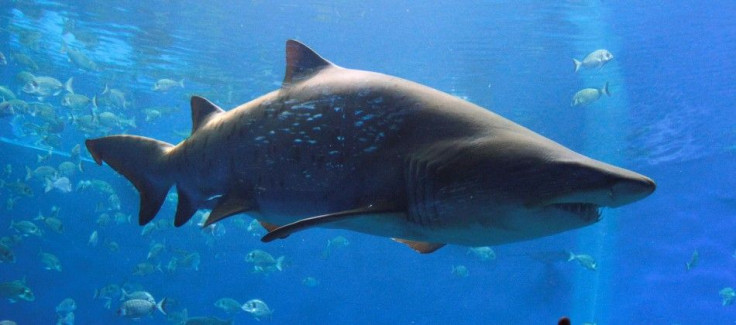To Save Sharks from Soup and Human Greed, California Bans Trade

Campaigns to protect the shark species have seen progresses last week, with the California Senate passing the ban on sales and possession of shark fins last Tuesday. In Toronto, the City Council voted unanimously to support a city-wide ban on the sales and consumption of shark fin on Friday.
Shark fins could cost as much as $600 per pound, building up a billion-dollar global industry that plunders tens of millions of sharks every year for their fins.
In the brutal practice of shark finning, shark fins are removed from the shark's body and the de-finned shark is thrown back to the ocean where it slowly bleeds out and dies.
Intensive fishing causes severe damage on shark populations, because sharks produce few offspring and their reproduction begins when they are over 10 years old.
Not only is the finning of sharks barbaric, but their indiscriminate slaughter at an unsustainable rate is pushing many species to the brink of extinction, states stopsharkfinning.net.
Since the 1970s the populations of several species have been decimated by over 95%. Due to the clandestine nature of finning, records are rarely kept of the numbers of sharks and species caught. Estimates are based on declared imports to shark fin markets such as Hong Kong and China, the website said.
The California Shark Protection Act, AB 376 introduced by State Assemblyman Paul Fong and State Assemblyman Jared Huffman, would ban the sale, distribution and possession of shark fins in California.
The laws also aims to curb over fishing and, in doing so, help restore the shark population in the ocean.
California is a market for shark fin and this demand helps drive the practice of shark finning. The market also drives shark declines. By impacting the demand for shark fins, California can help ensure that sharks do not become extinct as a result of shark Finning, states the legislation.
California's move follows the bans of shark fin sales in Hawaii, Oregon, Washington and some parts of Canada. The Bahamas and Honduras too have banned shark fishing.
Environmental groups have made extensive efforts to reduce the market for shark fins. The Food Network has removed all shark recipes from its catalog of recipes.
Even in Asia, where demand for the shark fins is increasing, campaigns to end shark fin dining are seeing progress. Campaign efforts from the conservation group WildAid and endorsements from celebrities like basketball star Yao Ming have reduced shark fin consumption by one-third in Honk Kong, Singapore and Taiwan.
It is time to stop serving a soup that is driving sharks to extinction. The cultural issue is very minor compared to the major environmental devastation of eliminating sharks for our world's oceans, Fong said in a statement.
We are one critical step closer to ending California's role in the destruction of shark species and to giving these remarkable top predators a chance to recover their populations and restore some balance to our oceans, said Huffman.
The California ban will have a major impact on the sale of shark fins in the U.S. since most are imported from Hong Kong via California.
In Toronto, the staff report and a special meeting on the city-wide ban on shark fin will take place later in 2011. Toronto too has large Asian populations, producing high demands for shark fins.
© Copyright IBTimes 2024. All rights reserved.











